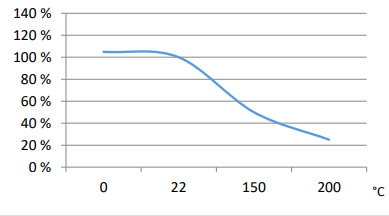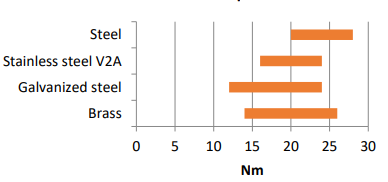Enhanced TDS
Identification & Functionality
- Chemical Family
- RTU Product Type
- Technologies
- Product Families
- Base Compound (Monomer)
Dimethacrylate
Features & Benefits
- Labeling Claims
- Ready-to-Use Product Features
- General Information about Anaerobic Adhesives
Anaerobic adhesives and sealants cure by means of metal contact and/or due to the absence of air. Due to these facts they are only suitable for bonding and sealing metals. Therefore, as such they are not traditional adhesives as commonly known, but are specifically good for the bonding of metal cylindrical parts where torsion-load and shearing-load play an important part. Furthermore, anaerobics are excellent sealants for threads and flanges. Anaerobis are solvent free, one component adhesives. There are active metals (construction steel, tool steel, free cutting steel, brass, copper) and inactive metals (high alloyed or stainless steel, aluminum, electroplated surfaces, cast iron). While products used on active metals cure very fast, the same products need longer times to cure when used on inactive metals. But this does not influence the intended strength.
Applications & Uses
- Markets
- Applications
- Application Area
- Compatible Substrates & Surfaces
- Clean Surface
The surface condition of the mating parts has an enormous influence on the success of a bond. To achieve good bonding success the mating parts should be clean. A certain amount of e.g. oil can be tolerated.
Properties
- Physical Properties
Value Units Test Method / Conditions Base Compound (Monomer) Dimethacrylate - - Density (at 20°C, monomer) 1.1 g/cm³ - Gap Filling Capacity (Monomer) 0.05 - 0.15 mm - Viscosity (Cone/plate, at 20°C at 160 s⁻¹) 500 - 800 mPa.s - Setting Time (M10 brass bolt/nut, at 23°C) 10 - 30 sec - Maximum Thread M 20 - - Full Cure Time (Polymer) 24.0 hours - Temperature Range (Polymer) -50 - 150 °C - Compressive Shear 18 - 28 N/mm² -
Regulatory & Compliance
- Certifications & Compliance
- Specification
- NSF S6 registered (No: 161206). This product is acceptable for use as a sealant or threadlocker in food processing facilities. It must only be used in a manner as to ensure it will have neither direct nor indirect contact with food or potable water.
- German drinking water approval: Conformity of formulation with the reference formulation of the German Environmental Agency.
Technical Details & Test Data
- Property Details & Graph
Temperature resistance Tested at temperature

Adhesive performance Tensile shear strength
Substrate, Result N/mm² Adhesive strength (Steel) 20 to 28 Adhesive strength (Stainless steel V2A) 16 to 24 Adhesive strength (Galvanized steel) 12 to 24 Adhesive strength (Brass) 14 to 26 Breakloose torque

Solvent resistance
Solvent Example Resistance alcohols ethanol, methanol, isopropyl alcohol Ok esters ethylacetate, benzoic benzyl ester, Ok other liquids water, freon, diesel oil Ok other liquids ammonium hydroxide, bromine, hydrobromic acid, lithium hydroxid, perchloric acid, potassium hydroxide Limited gasses acetylene, argon, butane, ethane,nitrogen Ok gasses ammonia, freon gas, oxygen (pure and /or oxygen rich systems), chlorine Limited Measurement of Viscosity
Viscosity describes the flow-ability of a liquid. Cyberbond measures the viscosity of the products by means of the cone/plate method: the liquid is applied on a panel and a defined cone presses the liquid together and rotates. You differentiate between a Newtonian and a thixotropic liquid. In terms of a Newtonian liquid you will get a relative constant viscosity graph in dependence of the rotary speed of the cone. In terms of thixotropic liquids the product becomes more liquid (down to its base viscosity) the faster the cone rotates. The viscosity is measured in mPa*s
Safety & Health
- Safety Information
- Keep the workplace clean and use in well ventilated areas only. Installll suitable exhaust system at the workplace.
- Wear suitable safety glasses and gloves.
Packaging & Availability
- Regional Availability
Storage & Handling
- Shelf Life
- 12 Months (at 20°C in unopened bottles, Monomer)
- Storage Conditions
Store products in a cold and dark place. Optimal storage temperature range is between 8 °C - 21 °C.
